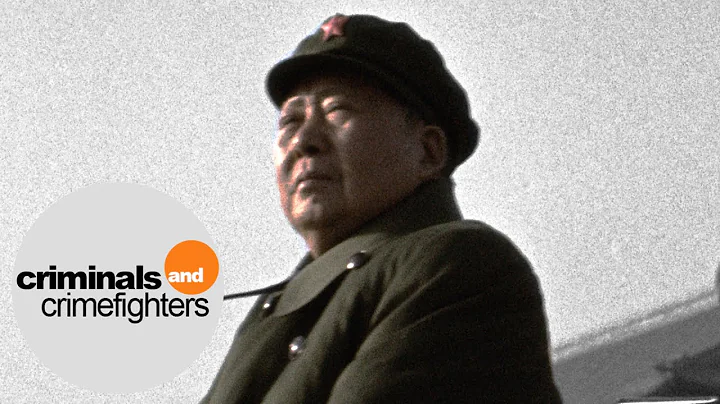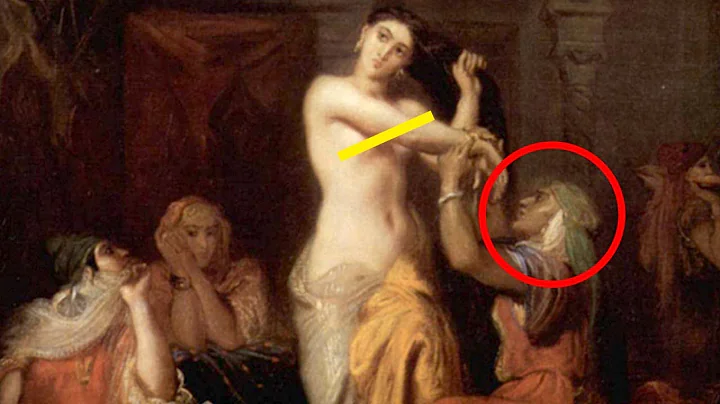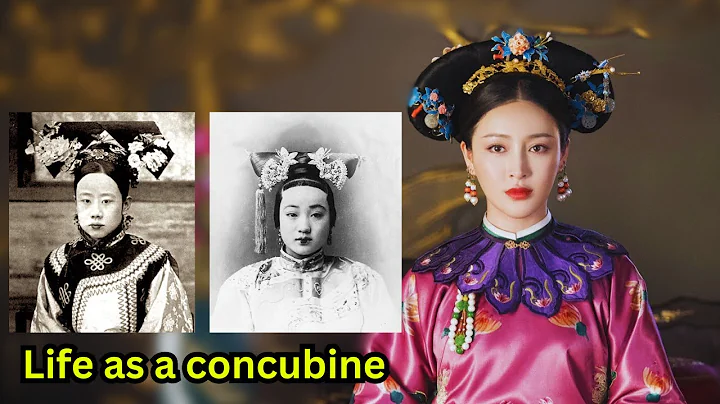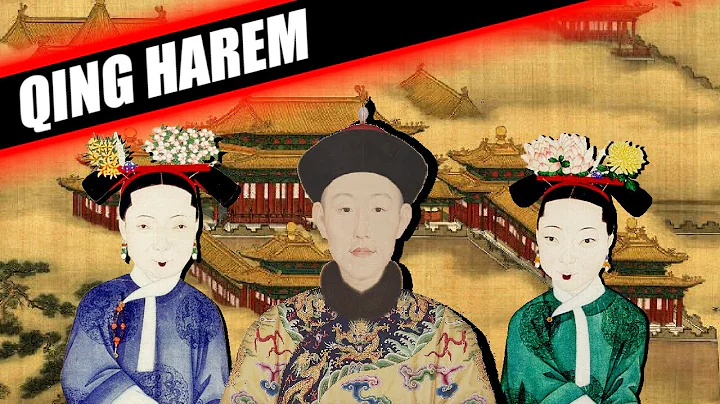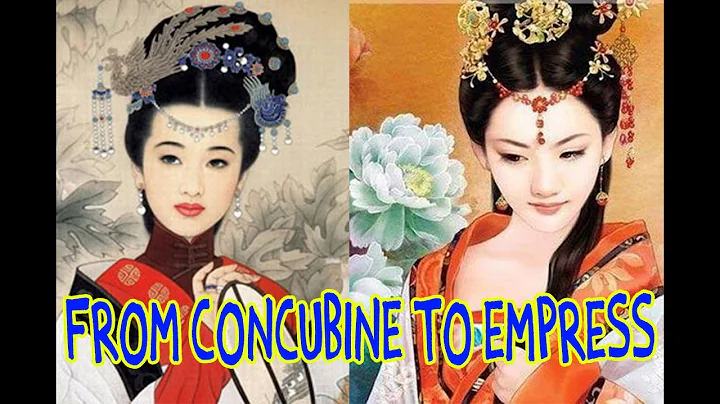In 1960, Chairman Mao went to Wuhan on a business trip, and Gao Zhi accompanied him as his secretary.
One day, Lao Zhang, who was in charge of Chairman Mao's daily necessities, came to him: "Secretary Gao, the Chairman's soap has run out. Can you contact your comrades in Wuhan to see if you can buy some soap?"
Gao Zhi heard this , agreed to ask the comrades in Wuhan.
"The chairman's place is short of soap. I wonder if I can buy some from you?"
Comrade Wuhan heard that Chairman Mao needed it, so he naturally agreed: "Yes, the chairman needs soap, so naturally he should guarantee it. Don't worry, Secretary Gao." After
returned to Beijing, comrades from the Central Security Bureau heard about this incident and severely criticized Gao Zhi and others. He also made many self-criticisms for this.
Gao Zhi has been with Chairman Mao for 10 years. Why did he make a self-examination after buying a piece of soap?
have to admire the chairman!

A Piece of Soap
In 1960, China was in a difficult time. Strict and effective rationing of everything was implemented, and no matter what was purchased, a receipt was required. When
pays wages, it will also issue various supply tickets, no matter who it is, even Chairman Mao and the heads of the central government are no exception.
However, when Chairman Mao went out this time, none of the staff around him brought the tickets to buy soap, so the administrator found Gao Zhi to discuss it.
Therefore, the soap purchased for Chairman Mao was actually "credited".
Chairman Mao has always hated the staff around him who use his status to "do something special", and he also hates official corruption. After
returned to Beijing, the comrades of the Central Security Bureau heard about this incident and severely criticized Gao Zhi and others, asking Gao Zhi to reflect on this.
They are not making a fuss out of a molehill, but they hope that Gao Zhi and others will realize the seriousness of this matter and sound the alarm for them.
It was also because of this incident that Gao Zhi worked for Chairman Mao for ten years. When he left, all his belongings could not even fit into a small jeep.
Chairman Mao once praised him: "What a good man. It was a wise move to bring him here."
Yearning for revolution
Gao Zhi was born in 1928 in Jiaxian County, northern Shaanxi, the birthplace of "The East is Red" , Gao Zhi is familiar with this song, and he admires Chairman Mao endlessly because of this song.
He has had a wish since he was young, to meet Chairman Mao!
In 1943, he was admitted to the nationally renowned Suide Normal School in northern Shaanxi. Here, he was influenced by communist ideas and also liked to read some progressive books.
When he was 16 years old, he joined the Communist Party in school. Because of his outstanding performance in school, in 1945 he was assigned to do confidential work at the Yangjialing Central Government Office in Yan'an.
Hearing the news, Gao Zhi jumped up with excitement. Isn't Yangjialing, Yan'an, where Chairman Mao lives?
Working there doesn’t mean that his long-cherished wish will come true?
He naively thought that as long as he worked in Yangjialing, Yan'an, he would definitely meet Chairman Mao.
However, he had been to Yan'an for almost a month, but he still hadn't met Chairman Mao, which made him disappointed.
A comrade told him: "Chairman Mao has not always lived in Yangjialing, and he is busy with work. Wanting to meet Chairman Mao is not as easy as imagined."

Although others say so, Gao Zhi believes that the future is long. One day I will be able to meet Chairman Mao.
Looking at Chairman Mao from afar
This afternoon, after finishing his work, Gao Zhi walked out of the cave dwelling and wanted to stretch out and relax, when he suddenly saw a burly man walking out of the auditorium.
He stared at this man carefully. Isn't this Chairman Mao?
Excited, he quickly ran back to the cave and shouted: "Quick, go see Chairman Mao, I have seen Chairman Mao!"
Chairman Mao was accompanied by a female comrade. The two seemed to be talking about something, although I wanted to go forward and speak to Chairman Mao, but I was afraid of disturbing them.
could only watch Chairman Mao from a distance. It was not until they walked out of Yangjialing that Gao Zhi continued to work.
In March 1946, a play "The Greatest Hits" was performed in the auditorium in Yan'an, and Gao Zhi also came to the auditorium early to watch it.
Not long after, Chairman Mao came in from the north door of the auditorium, waved to everyone, and took his seat in the middle of the front row.
Gao Zhi was six or seven rows away from Chairman Mao. In order to see Chairman Mao, he stood up, stood on tiptoes, stretched his neck and looked at Chairman Mao.
Rather than watching a play, it is better to say that he has been watching Chairman Mao's back.
Although he still failed to speak to Chairman Mao, his spirit was satisfied.
followed Chairman Mao to fight in northern Shaanxi
After the Anti-Japanese War, the Kuomintang troops suffered repeated defeats on battlefields across the country. No matter how many elites they sent, they never returned.
Chiang Kai-shek was so angry that he smashed many teacups and removed many generals from their positions.
In order to reverse the situation, Chiang Kai-shek mobilized a large number of troops and changed the all-out attack to focus on attacking the two liberated areas of Shaanxi and Shandong.
Hu Zongnan alone mobilized 230,000 troops and launched a fierce attack on Yan'an.
Although northern Shaanxi was the liberated area of our army at that time, it only had more than 20,000 troops and was at an absolute disadvantage.
In particular, the enemy also dispatched a large number of aircraft to bomb in the air, but our army is far inferior to the enemy in terms of weapons and equipment.
Chairman Mao finally gave instructions to evacuate Yan'an in response to the current situation.
The Confidential Section of the Central Front Committee where Gao Zhi worked was always with Chairman Mao, Premier Zhou and other central leaders.
Because the Confidential Section must be ready to convey the instructions of central leaders to the subordinates at any time, in order to send and receive telegrams in a timely manner, Gao Zhi's residence was always closest to Chairman Mao, sometimes only separated by a wall.
Chairman Mao's instructions during the War of Liberation were distributed to various theaters across the country through the hands of Gao Zhi and other comrades.
And because of his outstanding work ability, he was transferred to the confidential room of Central Office.
Although Gao Zhi often saw Chairman Mao during his time in northern Shaanxi, he rarely spoke to him. He respected Chairman Mao from the bottom of his heart and hoped to have close contact with him.

Getting along with Chairman Mao day and night
He never thought that one day he would be able to have close contact with Chairman Mao, and it would be ten years.
One day in 1952, Director Ye Zilong came to Gao Zhi and had a conversation with him: "The organization has decided to let you serve as Chairman Mao's confidential secretary. Please prepare."
When he heard that he could work next to Chairman Mao, Gao Zhi Not to mention how excited he was inside, but he was worried that he was not capable enough and was not competent.
He told Ye Zilong all his worries: "Director, I don't dare to go!"
"Why?"
"I'm worried that I'm not qualified enough to do this job. What if something goes wrong?"
After hearing these words, Ye Zilong smiled: "Since the organization allows you to go, it means that the organization recognizes your work ability. If you are not good enough, how will they find you? With your ability, you are competent enough."
"But director, I'm from northern Shaanxi and can't speak Mandarin. I'm worried that Chairman Mao won't understand the northern Shaanxi dialect I speak, and I can't understand the Hunan dialect that Chairman Mao speaks very well!"
responded to his concerns. Ye Zilong said with relief: "Chairman Mao has lived in northern Shaanxi for more than ten years and can understand the northern Shaanxi dialect.
As for the Hunan dialect, it may be difficult to understand at first, but you will be able to understand it after a while. If you don’t understand anything, you can ask the Chairman.”
Although he was under a lot of pressure, Gao Zhi was eager to work next to Chairman Mao and he was willing to try.
In the summer of 1952, Gao Zhi followed the notice and came to Zhongnanhai to report. He was received by Luo Guanglu, another secretary of Chairman Mao.
The Hanhe Hall behind the Yinian Hall in Fengzeyuan is the office where their secretaries work.
Chairman Mao was accustomed to working at night and resting during the day. When Gao Zhi arrived, Chairman Mao was still awake.
Taking advantage of this time, Luo Guanglu took the time to introduce the situation here to Gao Zhi, and also found some documents for him to read.
Near lunch time, after Chairman Mao woke up, Luo Guanglu took him to see Chairman Mao.
When he thought about getting along with Chairman Mao day and night in the future, he was so nervous that a lot of sweat broke out on his forehead and his palms were also sweaty.
What should I say after meeting Chairman Mao? What questions would Chairman Mao ask? Gao Zhi knew nothing.
Outside Chairman Mao's bedroom door, he paused for a moment, took a deep breath, and tried to calm himself down.
Chairman Mao was reading in the bedroom, still wearing pajamas, leaning back on the bed, staring at the book in his hand.
"Chairman, your new confidential secretary Comrade Gao Zhi is here."
Hearing this, Gao Zhi quickened his pace, walked to Chairman Mao and said, "Hello, Chairman."
Chairman Mao slowed down after hearing the voice. Slowly stood up, stretched out his hand and held it tightly with Gao Zhi: "Welcome."
Chairman Mao, who has always been approachable, took Gao Zhi and chatted cordially: "Where did you go to school?"
"Chairman, after I graduated from elementary school He was admitted to Suide Normal School, and after studying there for one year, he was transferred to Yan'an. "
Chairman Mao of Suide Normal School had naturally heard of it, and he nodded with satisfaction: "I know this school, it is from northern Shaanxi. A famous school, it seems that you have the highest level of education among the comrades working around me, not bad!
I welcome you to come and work beside me from now on, okay?" Chairman Mao asked Gao Zhi.
Chairman Mao was very polite to everyone. The comrades who were transferred to work beside him were not regarded as serving himself by Chairman Mao, but he specifically emphasized the word "help".
In his opinion, they all serve the people, so comrades only help him do things, not his subordinates.

Gao Zhi used to think that Chairman Mao was unparalleled in military attainments, had a long-term vision, and was a leader worthy of respect.
After this meeting, he discovered that Chairman Mao, in addition to his personal charm, even his residence was so simple and plain.
Chairman Mao's bedroom is very simple and can be described as "clear at a glance".
In addition to a lot of books, there is no furniture at all, let alone antiques and decorations. There is only a wooden bed, a small square table, two single sofas and a seat.
On the left side of the bed are Chairman Mao's books and newspapers, and even on the square table are documents that Chairman Mao wants to review.
There was not a single brand-new item in his bedroom, but the slippers were clearly dated items.
The cloth shoes are also old and stale, and the pajamas hanging on the hangers are also heavily patched.
Although Chairman Mao is the leader of the country, every piece of furniture in his residence was "rented" from the state.
has to pay rent every month, so he is very frugal in life. Whatever items he needs to buy, the expenses must be paid out of his salary.
Chairman Mao's original monthly salary was 610 yuan. Later, when the country encountered difficulties, he took the lead in reducing his salary to 404.8 yuan.
Such a salary is simply not enough for Chairman Mao. He has to be responsible for the food, clothing, housing and transportation of his family, as well as entertaining guests.
When people in his hometown had financial difficulties, Chairman Mao always used part of his royalties to help them tide over the difficulties.
Handling official business
As Chairman Mao's confidential secretary, Gao Zhi should take the initiative to help Chairman Mao solve problems and reduce his workload.
One of his jobs was to help Chairman Mao select important documents and telegrams.
After Gao Zhi came here, Chairman Mao asked him to give the article a title. The title can determine the general content of the document.
Especially those files without titles. After reading, be sure to add titles, which will make it look much more convenient.
But Gao Zhi had never had any experience in this area, nor did he know how to title the article. He could only find newspapers and follow the example.
Because the titles in newspapers are very elegant, and some even add subtitles, Gaozhi also adds titles to documents in this way.
Chairman Mao couldn't help but laugh when he saw these documents with titles added: "I didn't realize that a great scholar like you had the ability to write a newspaper.
My document does not need to be so elaborate. You only need to write the main purpose of the document. Just give a rough summary and give it a title.
In this way, you don’t have to rack your brains, I can understand it at a glance, and we both save time and energy. "
After receiving Chairman Mao's teachings, Gao Zhi also knew how to title documents, which helped Chairman Mao save a lot of time.
did not want to disturb
Late one night in the winter of 1953, Chairman Mao was writing furiously in his office. There was a thick pile of reviewed documents on his desk.

Gao Zhi happened to be on duty that day, and he accidentally fell asleep when he woke up again.
He was shocked. : "Why did you sleep for so long? Will Chairman Mao come to him for anything? "
He hurried to Chairman Mao's study, walked up to Chairman Mao with a guilty look on his face, and looked at the thick documents on the desk: "Chairman, you have dealt with so much, why didn't you call me? "
Chairman Mao took a puff of cigarette, looked at Gao Zhi and said: "It's nothing urgent. "
" Chairman, it's my fault. I fell asleep and fell asleep. Why didn't you call me?
Chairman Mao looked at him and showed a smile: "If you are sleepy, just go to bed. Don't worry." Normally you have to help me deal with so many things, which is too hard.
Besides, I don’t want to be disturbed by others when I’m sleeping. Let’s compare our feelings. "
Working at night is a habit that Chairman Mao developed during the war. At that time, he had to march and fight during the day, and only at night could he work, study or think about strategic decisions.
Especially during the War of Liberation, countless copies were sent from various war zones every day. The urgent telegram sent was waiting for Chairman Mao to deal with it.
During that period, Chairman Mao was so busy that he had little time to rest. He could not sleep at night for several days.
He finally had free time to sleep in bed. Because he was worried about the development of the war situation, he often couldn't sleep for a few hours.
After the founding of New China, Chairman Mao still continued the habit of working at night, and did not rest until about 10 o'clock the next morning.
Chairman Mao even said. He does things according to the laws of the moon.
He does the same, and the staff around him can only do the same. It can only be lamented that Chairman Mao's energy is far beyond ordinary people, and he is very devoted to his work.
The two confidential secretaries took turns to take breaks. But Chairman Mao was alone.
Gao Zhi was on duty in the middle of the night and accidentally fell asleep.

Chairman Mao was a very emotional person. Although he was very serious at work, he was considerate and caring for the people around him.
When his secretary stayed up late with him, he couldn't bear it, but he was also considerate of their difficulties.
After seeing Gao Zhi's sweet sleeping face, Chairman Mao did not disturb him or criticize him. He just said considerately: "Sleep when you feel sleepy." , you usually work so hard, you deserve it. "
Unforgettable Farewell
On the afternoon of April 19, 1962, Chairman Mao was chatting with Gao Zhi in the Yi Niantang. While smoking a cigarette, he said to Gao Zhi: "You have been working by my side for ten years. I am very impressed by your ability." Of course I am satisfied.
But now I want to ask your opinion. Are you ready to continue working with me, or do you want to leave and work somewhere else? Tell me what you think. "
In fact, Gao Zhi already knew that he was about to be transferred before he came, and he was mentally prepared.
Gao Zhi told Chairman Mao that he wanted to return to his hometown in Shaanxi to work.
Chairman Mao nodded after hearing this: " After you return to Shaanxi, you must improve agriculture, industry, economy and education.
Remember, no matter where you go or what you do, you must calm down and don't be superficial. "
Before leaving, Gao Zhi was deeply moved by what Chairman Mao said. His eyes were filled with tears. He couldn't say anything except nodding his head.
Chairman is a very emotional person. Seeing him like this, His own emotions were also affected, and after a long silence, he said: "Don't leave in a hurry, wait until your lover gives birth to a child before leaving. "
Although Gao Zhi's wife is due to give birth soon, she still has to wait two or three months if she wants to give birth in Beijing.
If she goes to Xi'an to give birth, she can also make use of this time, get into work early, and give birth to the baby in Xi'an as soon as possible. development.
Even if he was reluctant to leave, Chairman Mao could not force him to stay.
Before leaving, Chairman Mao stopped him: "Let's take a photo together, what do you think?"
Gao Zhi helped Chairman Mao slowly stand up from the sofa, followed him to the entrance of Yi Niantang, and left A group photo.

On May 7, 1962, Gao Zhi left Zhongnanhai and returned to Shaanxi.
In Shaanxi, Gao Zhi still cannot forget Chairman Mao. Whether it is day or night, Chairman Mao's voice and smile can always be seen.
On January 13, 1965, Gao Zhi went to Beijing for a meeting. Chairman Mao immediately made time to meet him after learning about it, and the two held hands tightly again.
But none of them expected that this would be the last time the two of them met.
In 1976, after the news of Chairman Mao's death came out, Gao Zhi was extremely sad. After explaining everything, he immediately flew from Xi'an to Beijing and attended Chairman Mao's memorial service with a heavy heart.
In order to publicize Chairman Mao's great deeds to the public, after his retirement, he wrote many little-known anecdotes about great people, so that the world can understand a real and great Chairman Mao.










